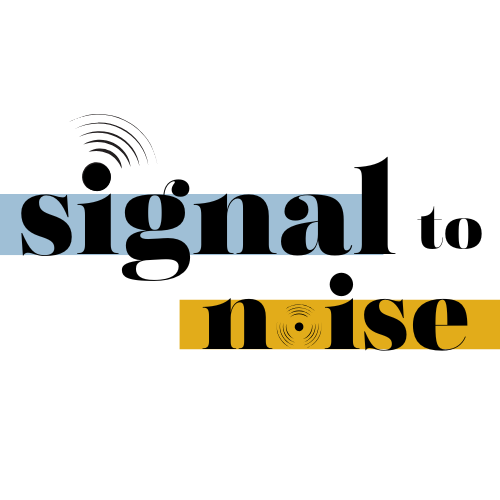Signal to Noise: Tuning in to What Matters in Teaching
May 13 and 14, 2026
In a dynamic teaching and learning soundscape, what still resonates?
Call for Proposals is closed

2026 theme: Teaching today is full of competing priorities, tools, and trends. In an era of constant information flow, educators face the challenge of distinguishing meaningful signals from distracting noise. How do we cut through the static to focus on what truly makes a difference for learners and educators? How do we amplify the signals that foster deep learning, equity, and engagement? How do we address the challenges we face and filter out the noise that overwhelms or misleads? Signal to Noise: Tuning in to What Matters in Teaching invites University of Toronto instructors, staff, and librarians to explore and share practices, research, and lived experiences that amplify what works and reduce distractions—creating space for meaningful, impactful teaching.
What is TLS2026? TLS2026 is a tri-campus celebration of teaching and learning at the University of Toronto, hosted by the Centre for Teaching Support & Innovation in partnership with the Education Technology Office in the Faculty of Applied Science and Engineering and the Desautels Centre for Innovative Thinking at the Rotman School of Management. Bringing together instructors, librarians, and staff from across Divisions, TLS2026 creates space for genuine exchange that highlights the insights, experiments, and experiences that make teaching meaningful. More than a conference, TLS is a cross-divisional forum for connection, curiosity, and collaboration. It invites participants to tune in to what truly matters in teaching, celebrate our shared commitment to learning, and spark new ideas that resonate across the university.
A note about terms of use. For the purposes of this symposium, we use “signal” and “noise” as a loose metaphor for teaching:
- Signal: practices and conditions that help students learn (for example, clarity, connection, feedback, authentic engagement)
- Noise: factors that get in the way of learning (for example, distraction, overcomplication, performative innovation, institutional static)
We invite you to keep this lens in mind when proposing sessions and examples, but it is meant to be flexible, not a strict requirement.
To participate in TLS2026, interested presenters can submit a short proposal (see links below). Use this Call for Proposals guide to prepare your submission.
Select a TLS Stream
We welcome proposals that address these Symposium streams:
Select a Proposal Format
When proposing a presentation, we ask that you review each format and select one you think fits your content the best. Each proposal format includes a submission protocol designed to guide authors and support a fair and transparent peer review process. Occasionally, we’ll ask if you’re open to another format; TLS has the wonderful challenge of being oversubscribed and we do our best to include as many presentations as possible.
Special Note: TLS2026 will include both in-person and online presentations (and participation) opportunities. Before you submit, review each session description carefully to:
- Confirm the presentation formats and modality options available
- Consider collaborative and partnership-based projects, including those with students, staff, teaching assistants, and/or others
- Indicate if your work includes as co-researchers, co-designers, or co-presenters. Note that instructors will lead the presentation and may include one student co-facilitator.
Symposium Formats
Please review formats to determine which one best aligns with your session.
Submit the TLS Call for Proposal Form
The call for proposals has closed.
Learn more about the TLS Proposal Review Process
Each proposal will be read carefully by multiple reviewers, whose evaluations and comments will help the committee build a balanced, engaging program. We recognize the time and thought that go into every submission and aim to review each one with care and respect for the work it represents. All proposals submitted through the Call for Proposals will be reviewed for alignment with the stream and format in which they were submitted. In some cases, the review committee may recommend a different stream or format if it better fits the proposal’s focus or goals. We aim to accept as many proposals as possible, but each year we receive more proposals than we can include in the program.
Reviewers will use a rubric to score proposals and will also consider how proposals demonstrate the following elements:
- Alignment with the theme Signal to Noise: Tuning in to What Matters in Teaching – the proposal explicitly indicates how the presentation helps educators focus on what truly matters for learning, such as clarifying purpose, simplifying complexity, or amplifying meaningful engagement.
- Fit with the selected session format and stream – the proposal clearly matches the expectations of the chosen session type and stream, showing that the content, scope, and interactivity are appropriate for that format.
- Representation across campuses, divisions, and disciplines – the proposal identifies the presenter’s home campus or division and highlights collaborations that reflect the diversity of U of T’s teaching and learning community, including proposals from UTSC, UTM, and St. George, and across diverse teaching roles such as faculty, librarians, and educational developers.
- Relevance and contribution to the wider teaching and learning community – the proposal demonstrates how the presentation will contribute useful insights, either by sharing broadly applicable strategies or by offering context-specific lessons that others can adapt.
- Diversity of presenters and perspectives, including students-as-partners – the proposal includes or acknowledges multiple viewpoints, roles, or lived experiences, showing a commitment to inclusive and collaborative teaching practice. The proposal indicates if the presenter is a first-time contributor or returning participant, supporting efforts to balance fresh perspectives with experienced voices.
- Balance across modalities (online and in-person) – the proposal identifies its preferred modality and outlines how participants will be effectively engaged in that format.
Our goal is to create a vibrant, well-rounded program that reflects the range of teaching and learning experiences at the University of Toronto and amplifies voices from as many corners of our community as possible.
